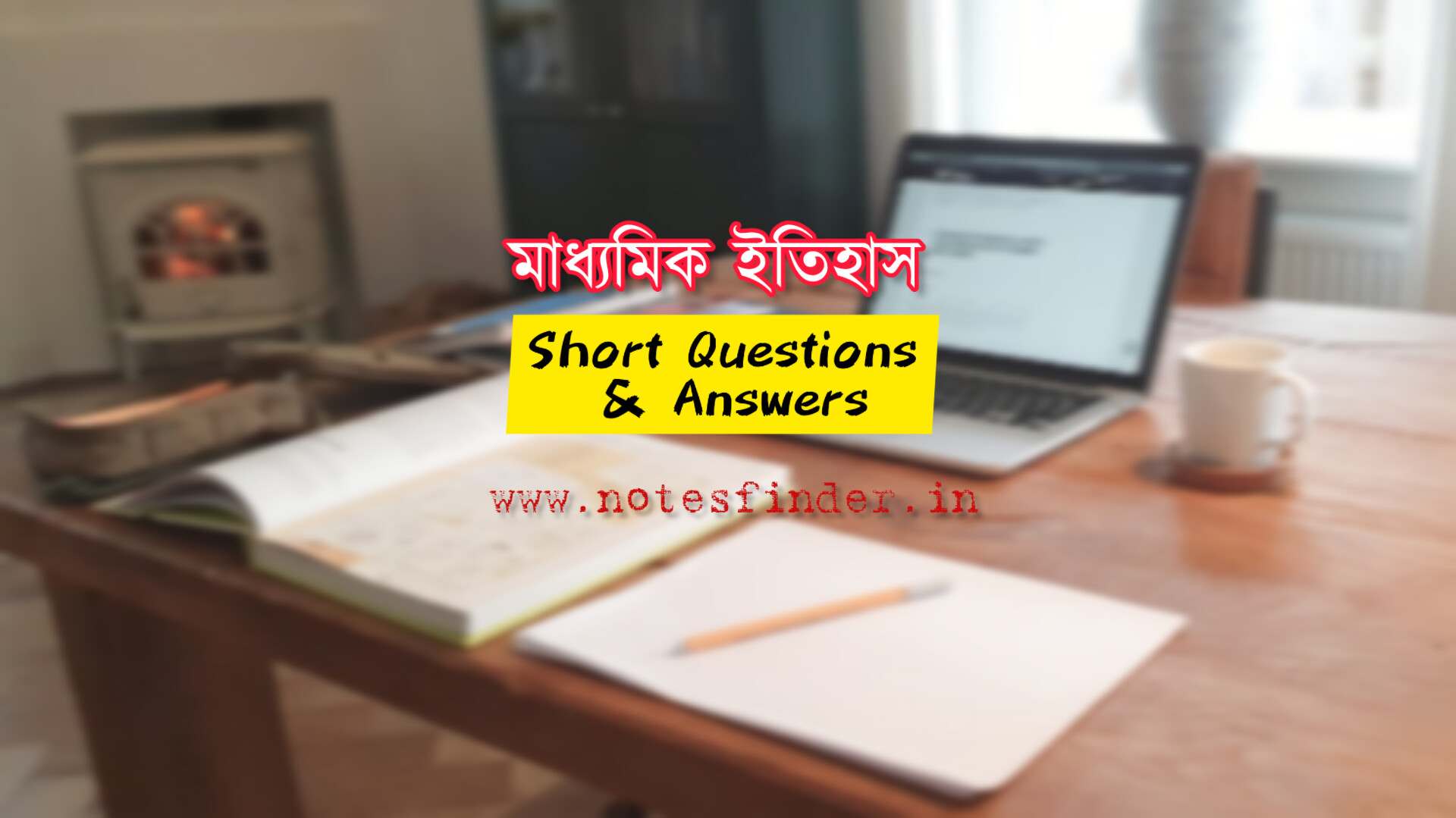The Passing Away of Bapu Unit 3 Bengali meaning
Unit 3
Some days after the funeral, a special train took Gandhiji’s ashes to Allahabad.
অন্ত্যেষ্টির কিছুদিন পরে একটি বিশেষ ট্রেনে গান্ধিজির চিতাভস্ম এলাহাবাদে নিয়ে যাওয়া হয়েছিল।
The compartment was decked with flowers.
কামরাটি ফুল দিয়ে সাজানো ছিল।
People on the train sang bhajans.
ট্রেনের মানুষজন ভজনগীত গাইছিল।
People did not weep anymore for they could feel Gandhiji’s presence amid the flowers and the songs.
মানুষজন আর কাঁদছিল না কারণ তার ফুল ও ভজনের মধ্যে গান্ধীজীর উপস্থিতি অনুভব করতে পারছিল।
At every station sorrowful crowds filled the platform.
প্রতিটি স্টেশনের প্ল্যাটফর্মই শােকার্ত মানুষের ভিড়ে পরিপূর্ণ ছিল।
Amid song and prayer the train reached Allahabad.
গান ও প্রার্থনার মধ্যে দিয়ে ট্রেনটি এলাহাবাদে পৌঁছাল।
The ashes were immersed in the Ganges where a huge crowd had gathered at the bank.
নদীর ধারে যেখানে প্রচুর মানুষের ভিড় হয়েছিল, সেখানে গান্ধিজির চিতাভস্ম গঙ্গার জলে বিসর্জন দেওয়া হল।
Afterwards we all went back to Delhi.
তারপর আমরা সবাই দিল্লিতে ফিরে আসি।
Back in Delhi, I felt at sea.
দিল্লিতে ফিরে আমি দিশেহারা অনুভব করছিলাম।
I had not directly walked with Gandhiji, gone to prison at his call or made any sacrifice for my country.
আমি গান্ধিজির সঙ্গে সরাসরি হাঁটিনি, তাঁর ডাকে জেলে যাওয়া বা দেশের জন্য কোনাে স্বার্থত্যাগ করিনি।
My sisters and I, and other young people like me, had been merely onlookers.
আমি, আমার বোনেরা এবং আমার মতো অল্পবয়সী মানুষেরা শুধুই প্রত্যক্ষদর্শী ছিলাম।
But still i felt at sea.
কিন্তু তবুও মনে হল আমি যেন দিশেহারা।
I felt I had grown up within a magic circle.
আমার মনে হল আমি কোনো যাদুবৃত্তের মধ্যে বেড়ে উঠেছি।
With Bapu’s passing away, I felt the magic circle had vanished, leaving me unprotected.
বাপুর মৃত্যুর সাথে মনে হল, আমাকে অসুরক্ষিত অবস্থায় রেখে সেই জাদুবৃত্ত মুছে গেছে।
With an effort I roused myself.
চেষ্টা করে আমি নিজেকে দাঁড় করালাম।
I asked myself-had Bapu lived and died for nothing?
আমি নিজেকে প্রশ্ন করলাম—বাপু কি শুধুই বেঁচেছিলেন আর এমনি এমনি মারা গেলেন?
How could I so easily lose courage when he was no longer there?
আমি কি করে এত সহজে সাহস হারালাম যখন তিনি আর নেই?
My values were not so weak.
আমার মূল্যবোধ এত দূর্বল ছিল না।
Millions of people would have been ordinary folk but for Bapu.
বাপু না থাকলে লক্ষ লক্ষ মানুষ নিতান্তই সাধারণ মানুষ হয়েই থাকত।
He brought them out of indifference and awakened them to one another’s suffering.
তিনি তাদেরকে উদাসীনতা থেকে তুলে এনে একে অপরের কষ্টে সচেতন করেছিলেন।
What if now Bapu is gone?
বাপু চলে গেলেই বা কী হয়েছে?
We were still there, young, strong and proud to bear his banner before us.
আমরা তরুণ, শক্তিশালী ও গর্বিতরা তাে এখনও আছি তাঁর পতাকা বহন করার জন্য।
Bapu had passed away but his India would continue to live in his children.
বাপু মারা গেছেন কিন্তু তাঁর ভারত তাঁরই সন্তানদের মধ্যে বেঁচে থাকবে।
The Passing Away of Bapu- Unit 3 -Comprehension exercises
- Choose the correct alternative to complete the following sentences:
(a) Gandhiji’s ashes were taken to
(i) Ahmedabad
(ii) Allahabad
(iii) Delhi
(iv) Benaras
Ans: (ii) Allahabad
(b) A huge crowd had gathered by the
(i) Ganges
(ii) Yamuna
(iii) Brahmaputra
(iv) Narmada
Ans: (i) Ganges
(c) Gandhiji awakened people to one another’s
(i) indifference
(ii) jealousy
(iii) suffering
(iv) greed
Ans: (iii) suffering
- Complete the following sentences with information from the text:
(a) People on the special train __.
Ans: People on the special train sang bhajans.
(b) The author felt she had grown up within __.
Ans: The author felt she had grown up within a magic circle.
(c) Bapu had passed away but __.
Ans: Bapu had passed away but his India would continue to live in his children.
- Fill in the chart with information from the text:
| Cause | Effect |
| (a) People could feel Gandhiji’s presence amid the flowers and the songs. | (a) People did not weep anymore. |
| (b) The magic circle had vanished. | (b) The author felt at sea. |
| (c) The author’s values were not so weak. | (c) The author felt that she wouldn’t lose courage so easily. |
The Passing Away of Bapu-Grammar in use
- Join the following pairs of sentences into single sentences as directed:
(a) I saw a snake. I ran away.(use participle)
Ans: Seeing a snake, I ran away.
(b) He learns music. He listens to the chords. (use preposition with gerund)
Ans: By listening to the chords, he learns music./ He learns music listening to the chords.
(c) Gold is a precious metal. It is used to make ornaments. (use noun in apposition)
Ans: Gold, a precious metal, is used to make ornaments.
(d) Ramu has some money. He can buy books. (use infinitive)
Ans: Ramu has some money to buy books.
(e) The sky was cloudy. We postponed our journey. (use nominative absolute)
Ans: The sky being cloudy, we postponed our journey.
(f) The boy wrote the answer. The answer was incorrect. (use adverbial phrase)
Ans: The boy wrote the answer in an incorrect way.
- Join the following pairs of sentences into single compound sentences as directed:
(a) The old man is unwell. He cannot go out. (use Illative conjunction)
Ans: The old man is unwell so he cannot go out.
(b) He is honest. He is humble. (use cumulative conjunction)
Ans: He is not only honest but also humble.
(c) Sonali cannot write poetry. She keeps on trying. (use adversative conjunction)
Ans: Sonali cannot write poetry but she keeps on trying.
(d) Study hard. You will not pass the examination. (use alternative conjunction)
Ans: Study hard or you will not pass the examination.
- Join the following pairs of sentences into single complex sentences as directed:
(a) Rabindranath Tagore is a famous poet. He won the Nobel Prize. (use adjective clause)
Ans: Rabindranath Tagore, who is a famous poet, won the Nobel Prize./Rabindranath Tagore, who won the Nobel Prize is a famous poet.
(b) He returned home. Everyone in the family had fallen asleep. (use adverb clause)
Ans: When he returned home, Everyone in the family had fallen asleep.
(c) The sun rises in the east. Everyone knows it. (use noun clause)
Ans: Everyone knows that the sun rises in the east.
- Join the following pairs of sentences into single sentences as directed:
(a) It rained hard. The roads were not flooded. (compound sentence)
Ans: It rained hard but the roads were not flooded.
(b) He completed his work. He took rest. (simple sentence)
Ans: On completing his work, he took rest.
(c) Rahul is a great singer. He can sing different kinds of songs. (complex sentence)
Ans: Rahul, who is a great singer, can sing different kinds of songs.
(d) The time of departure of the train has changed. Alia knew it. (complex sentence)
Ans: Alia knew that the time of departure of the train had changed.
(e) I do not watch television. I do not listen to the radio. (compound sentence)
Ans: I watch neither television nor listen to the radio.
(f) The child was short. The child could not pick the guava from the tree. (simple sentence)
Ans: Being short, the child could not pick the guava from the tree.
- Split the following into two sentences:
(a) It rained and I could not leave my room.
Ans: It rained. I could not leave my room.
(b) He thought that he could win the race.
Ans: He could win the race. He thought it.
(c) Having been informed of the trouble, the Principal left for home.
Ans: The principal had been informed of the trouble. He left for home.
(d) Nasir, who was the captain of the team, scored a century.
Ans: Nasir was the captain of the team. He scored a century.
The Passing Away of Bapu-Writing activities
- Write a biography of Maulana Abul Kalam Azad (within 100 words) based on the hints given below:
born on 11 November 1888-composed poetry in Urdu-worked as a journalist, protested against British Raj-enthusiastic supporter of Gandhiji’s ideas-wrote many books-like ‘India wins freedom’, ‘Ghubar-e-Khatir’ etc.first Education Minister of independent India-birthday celebrated as National Education Day-died on 22 February 1958
Ans:
Maulana Abul Kalam Azad
Maulana Abul Kalam Azad, a versatile genius is a great freedom fighter.He was born on November 11, 1888. He worked as a journalist for a long time. During this long period he continued his protest against the British Raj. He was a great and enthusiastic follower of Gandhiji and his philosophy. He wrote many books and Urdu poems. Some of them are ‘India wins freedom’. ‘Ghubar-e-Khatir’ etc. After independence he became the first Education Minister of India. Now his birthday is observed as National Education Day. This great man left us forever on February 22, 1958.
- Use the following flow-chart to write a paragraph (within 100 words) on how a building is constructed:
drawing of a plan of the building by the architect-getting the plan sanctioned by the corporation or municipal authorities-engaging masons and labourers-starting the construction with bricks, cement and sand-fitting doors and windows-plastering of walls-wiring-electric and water connections-painting-building completed-fit for living
Ans:
Making of a Building
A building is used for various purposes. When a building is to be constructed, we have to follow a long process. At first, the drawing of a plan is collected from an architect. Then it is sent to the Corporation or municipal authorities for sanction. After that, masons and labourers are engaged. Next the construction is started with bricks, cement and sand. Then the doors and windows are fitted. After the completion of the construction, the walls are plastered. Then the electric and water connections are set . After that the walls are painted both inside and outside. Now the building is complete and fit for living.
• Lesson 1 Father’s Help
• Lesson 2 Fable
• Lesson 3 The Passing Away of Bapu
• Lesson 4 My Own True Family
• Lesson 5 Our Runaway Kite
• Lesson 6 Sea Fever
• Lesson 7 The Cat
• Lesson 8 The Snail



